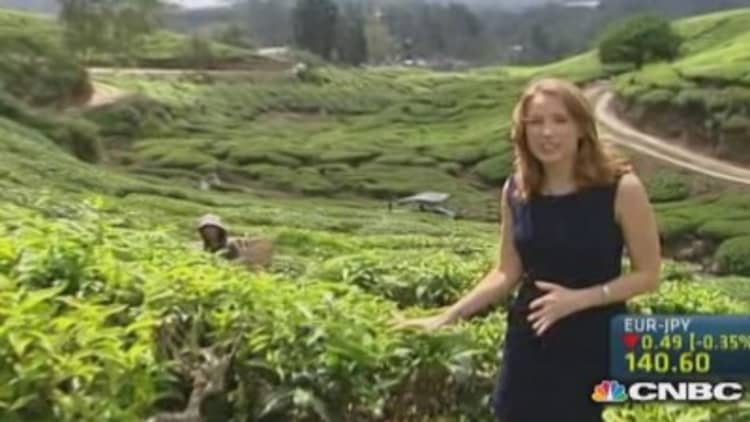Southeast Asia's fastest growing economy goes to the polls next month and Sri Lanka's vote looks set to set to be a close race for the first time in nearly a decade.
In November, President Mahinda Rajapaksa announced the country would go to the polls on January 8 - nearly two years ahead of schedule - in an attempt to seek a fresh mandate amid waning popularity. In a dramatic turn of events following the news, Rajapaksa's health minister Maithripala Sirisena quit to become the president's rival candidate, backed by the leading opposition party United National Party (UNP).
Sirisena, who was also general secretary of the ruling party, is now running an opposition coalition calling for constitutional reforms to limit executive power and restore independent bodies to monitor civil service, judiciary and human rights.
Read MoreIsSri Lanka the new investment darling?
"Amid Sri Lanka's authoritarian drift and institutionalized impunity, that a real political competition is in the offing provides unexpected hope for the future," said the International Crisis Group (ICG), a non-governmental organization (NGO) aimed at resolving deadly conflicts, in a December report.
A survey by The Center for Policy Alternatives (CPA), a Colombo-based think tank, found that 76 percent of respondents believed Sirisena would win if elections were held immediately.
Key issues at hand
The 69-year old Rajapaksa has ruled for two consecutive terms since coming to power in 2005 and negative public sentiment is growing. Complaints include dynasty politics, rampant corruption, concentrated power in the hands of the president, ethnic conflict and the soaring costs of living, according to the ICG.
"Economic development has focused on expensive infrastructure projects that have produced few jobs, while public services - schools, universities, and the health system - have been underfunded and allowed to deteriorate," the ICG said.
Meanwhile, an 11-month drought has seen sharp increases in food prices, with rice - a staple food - surging 36 percent on year by the end of September, according to United Nations data. 43 percent of citizens stated they've cut back on the amount or quality of purchased food this year, the CPA said in an October report.
The treatment of Tamil minorities also remains a hot-button topic as the group continues to face human rights violations despite the end of a 25-year long civil war with the majority Sinhalese in 2009.

Who's better for the economy?
Deutsche Bank notes that the Sri Lankan economy will continue growing irrespective of which party comes to power as long as order reigns.
"The key for Sri Lanka is to achieve political stability and continue with growth-critical reforms that are in the long-term interest of the country. Tourism, which is the backbone of the Sri Lankan economy and attracts the maximum foreign direct investment, cannot thrive in an environment marked by political unrest," the bank stated in a December report.
Despite the criticism aimed at Rajapaksa, the island has thrived under his term, with 2014 gross domestic product (GDP) growth of nearly 8 percent.
"The last five years have proved to be transformational for Sri Lanka...Barring China, Sri Lanka's average growth outturn of 7.5 percent between 2010-14 has been higher than all Asian economies during the corresponding period," Deutsche Bank said in a December note, adding that the stock market has given a cumulative return of 300 percent in U.S. dollar terms from 2009 to 2014.
"If Rajapaksa secures a third term, he is likely to continue his existing policies, namely large-scale infrastructure development (with a preference for Chinese investment), export-oriented growth, and hydrocarbon exploration and production," said Asad Ali, country risk analyst at IHS.
A new term for Rajapaksa will also lead to a reinforced emphasis on expensive populist measures, such as public sector wage increases, added Ali, which will put further pressure on government borrowing.
Public debt stood at around 78 percent of GDP in 2013, one of the highest among emerging economies, according to the International Monetary Fund. In a report published in September, the organization suggested authorities target a gradual reduction to 50 percent of GDP, relying on primarily revenue measures.

